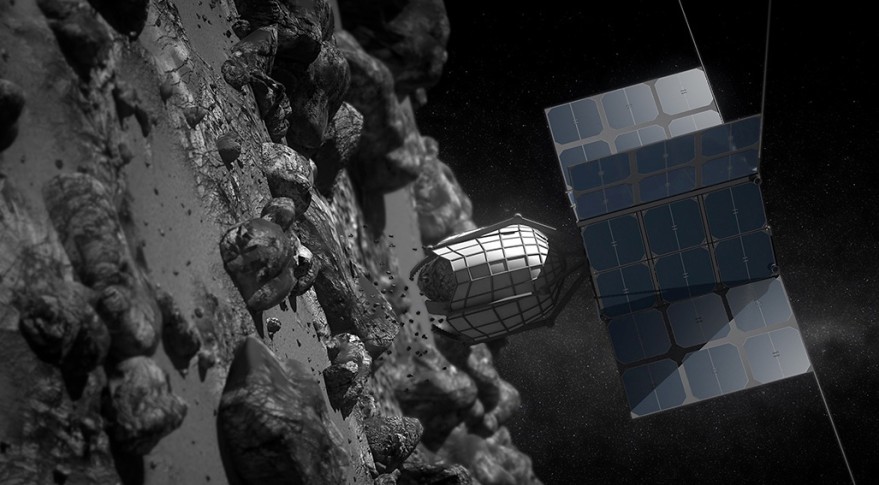US Senate Passes Compromise Commercial Space Bill

WASHINGTON — The Senate passed Nov. 10 the final version of a commercial space bill that extends two key regulatory provisions and provides limited property rights for resources extracted from asteroids.
The Senate approved by unanimous consent H.R. 2262, the U.S. Commercial Space Launch Competitiveness Act. The bill reconciles a House bill, originally known as the Spurring Private Aerospace Competitiveness and Entrepreneurship Act of 2015, passed in May with a Senate bill approved in August.
The final bill includes lengthy extensions of two provisions of commercial launch law that were scheduled to expire next year. It extends through September 2025 government indemnification of third-party damages from commercial launches beyond a "maximum probable loss" amount launch providers must ensure against. That indemnification was scheduled to expire at the end of 2016.
The bill also extends a restriction on the government's ability to enact safety regulations for people flying on commercial spacecraft. That restriction, widely known in the industry as the "learning period" because it was designed to allow companies to build up flight experience upon which regulations could be based, was scheduled to expire at the end of March after two previous extensions. This bill extends the learning period through September 2023.
"Today, the Senate passed a bill with far-reaching implications for the future of space exploration and the U.S. space industry," said Sen. John Thune (R-S.D.), chairman of the Senate Commerce Committee, in a Nov. 10 statement. He thanked key members of the House and Senate who worked together to reconcile differences between the two bills.
"Today's action is the result of months of work with our Senate colleagues to move this crucial legislation forward," said Rep. Lamar Smith (R-Texas), chairman of the House Science Committee, Nov. 10. "This bill provides the boost America's private space partners need as they lead the world into the future."
The conference committee reconciling the House and Senate bills completed its work in late October. "It looks like there has been a resolution between the House and Senate on a commercial space bill," Sen. Bill Nelson (D-Fla.) said in an Oct. 28 speech on the Senate floor. At the time he said he expected to bill to be cleared for passage by the Senate within a day or so.
Breaking space news, the latest updates on rocket launches, skywatching events and more!
However, one or more members of the Senate placed a hold on the bill Oct. 29. Sources familiar with the bill at the time said the hold was based on sections of the bill that extend cross-waivers of liability that currently exist between launch providers and their customers to include spaceflight participants as well. Opponents of that language in the original House bill earlier this year argued that it would provide launch companies with immunity from civil actions in the event of an accident.
It's unclear if the hold had any effect on the final version of the bill passed by the Senate. The bill does include spaceflight participants in the cross-waivers of liability but unlike the original House bill, only through September 2025.
The bill has a number of additional provisions beyond commercial launch law. It includes a section from the original Senate bill that authorizes NASA to continue operations of the International Space Station through at least 2024. Another section discusses uses of NASA's Space Launch System, supporting its use not just for human space exploration missions but also other payloads that "substantially benefit from the unique capabilities" of the heavy-lift rocket.
The final bill also includes a revised version of space resource property rights language included in the House bill. The bill states that any U.S. citizen "shall be entitled to any asteroid resource or space resource obtained," including the ability to own or sell that resource. The bill, though, specifically excludes ownership of asteroids themselves, which would violate international treaties.
While the final bill is not as far reaching in space resource rights as the original bill, which included language allowing for legal action to block "harmful interference" from obtaining such resources, companies with long-term asteroid mining plans welcomed the bill. "We are pleased to see the beginnings of legal clarity in the field of space resource utilization," said Rick Tumlinson, chairman of Deep Space Industries, in a Nov. 10 statement.
"We are proud to have the support of Congress," said Chris Lewicki, president of Planetary Resources, in a separate statement. "H.R. 2262 fuels a new economy that will open many avenues for the continual growth and prosperity of humanity."
The bill now goes back to the House for final passage. House Majority Leader Kevin McCarthy (R-Calif.), who sponsored the original House version of the bill, said in a Nov. 10 statement that he planned to schedule final approval of the bill "as soon as possible" after the House returns from break Nov. 16.
This story was provided by SpaceNews, dedicated to covering all aspects of the space industry.

Jeff Foust is a Senior Staff Writer at SpaceNews, a space industry news magazine and website, where he writes about space policy, commercial spaceflight and other aerospace industry topics. Jeff has a Ph.D. in planetary sciences from the Massachusetts Institute of Technology and earned a bachelor's degree in geophysics and planetary science from the California Institute of Technology. You can see Jeff's latest projects by following him on Twitter.

